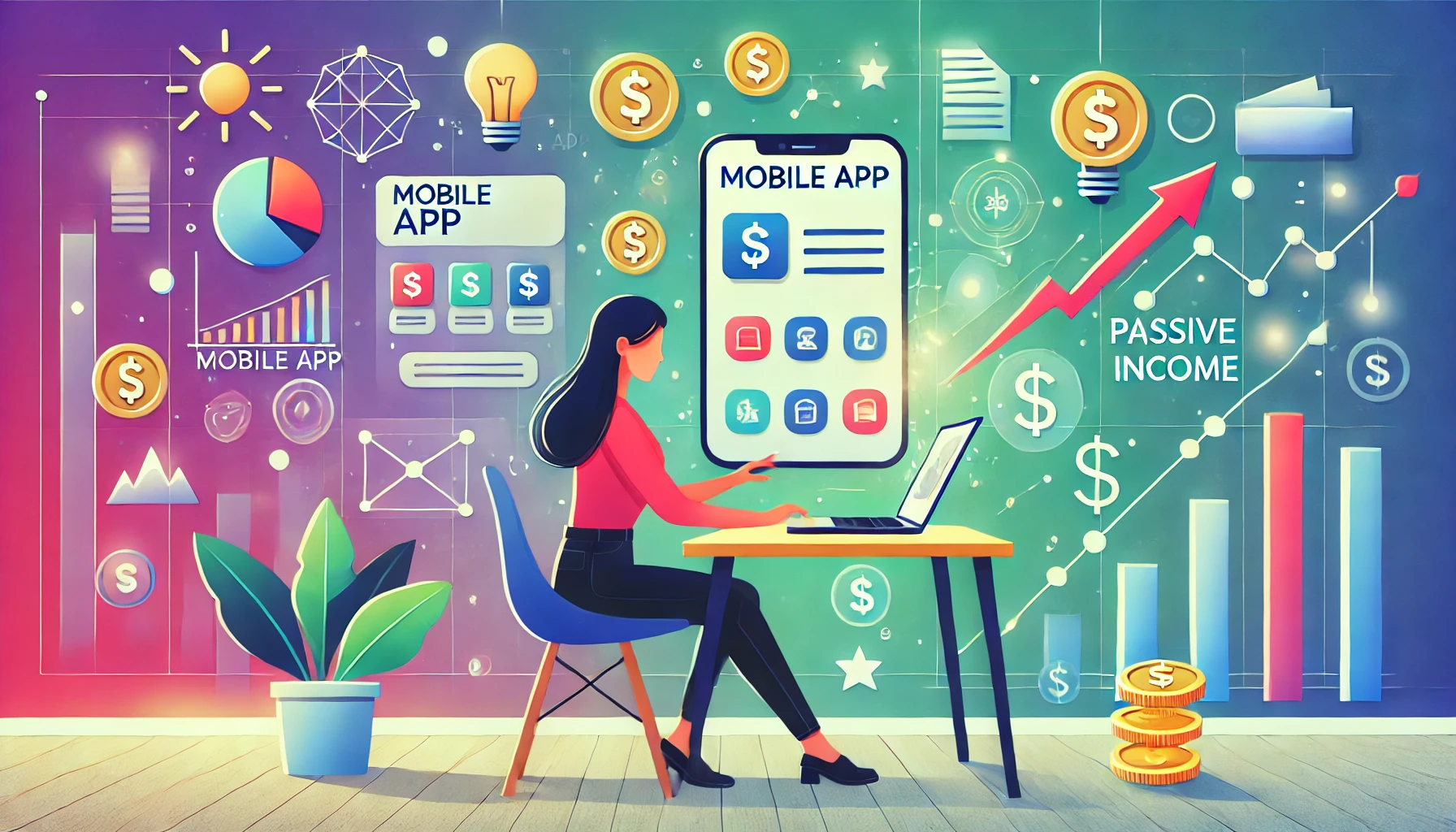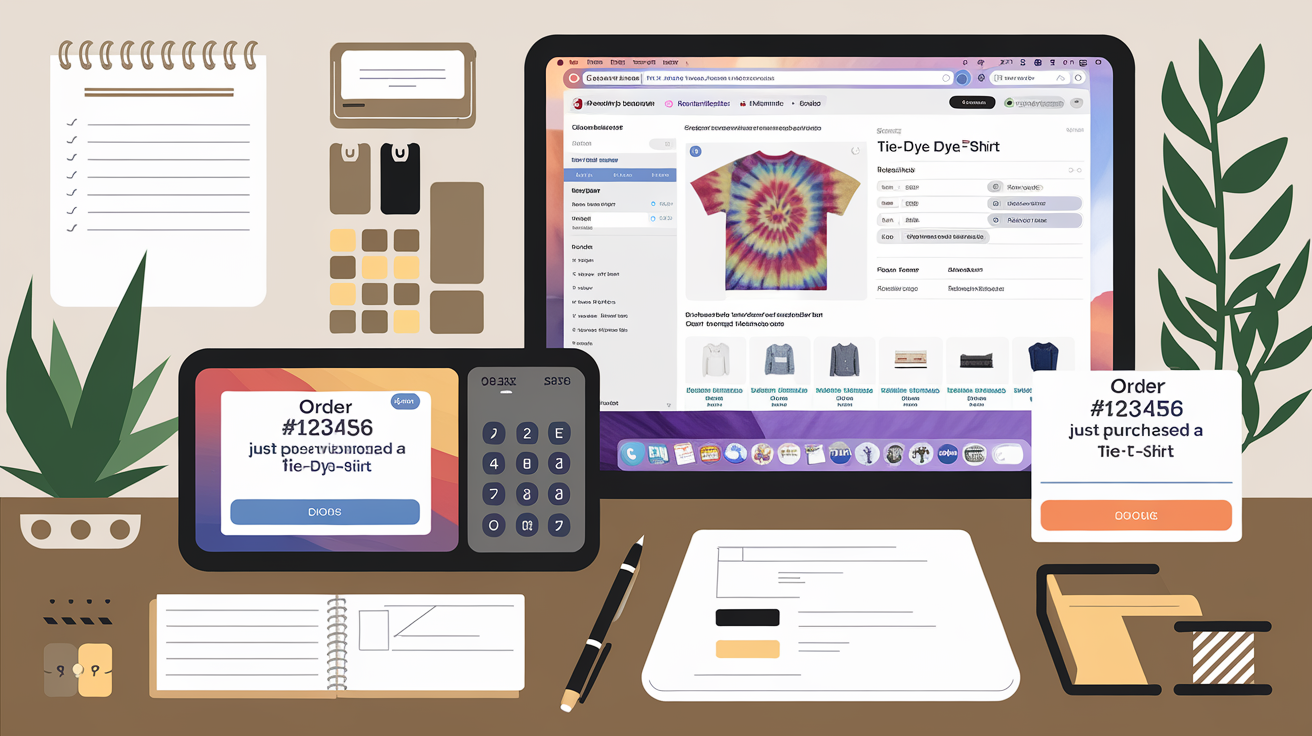

Introduction
In today’s digital era, creating a stream of passive income has become more accessible and enticing than ever before, and one of the most promising avenues to explore is mobile app development. This article will guide you through understanding the lucrative opportunity of generating passive income through mobile apps, detailing every aspect from conception to monetization.
Why Choose Mobile Apps for Passive Income?
Mobile devices have become ubiquitous, greatly influencing our daily routines and behaviors. The continuous demand for new and innovative apps provides a fertile ground for developers looking to earn passive income. From addictive games to practical daily tools, mobile apps can reach a vast audience willing to pay for convenience and entertainment.
Understanding Different Types of Mobile Apps
Apps come in various forms, each catering to different user needs and markets:
- Consumer Apps: These are designed for the general public and include categories like social media, lifestyle, and health.
- Business Apps: Focused on enhancing productivity, managing tasks, or simplifying business processes.
- Gaming Apps: From simple puzzles to complex strategy games, these are particularly profitable in the app market.
Step-by-Step Guide to Developing a Mobile App
Developing a mobile app might seem daunting, but breaking it down into steps makes it manageable:
- Idea Generation: Identify a need or niche that your app can fill.
- Market Research: Understand your audience and what they value in an app.
- Designing Your App: Focus on user-friendly interfaces and engaging experiences.
- Development Tools and Platforms: Choose the right tools like Swift for iOS or Kotlin for Android.
- Launching Your App: Release it on app stores like Google Play or Apple App Store.
- Marketing Strategies: Promote your app through various channels to attract users.
Monetization Strategies for Mobile Apps
To turn your app into a source of passive income, consider these monetization strategies:
- In-app Purchases: Offer additional features or content within your app for a fee.
- Subscription Models: Charge a recurring fee for continued access to your app’s content or services.
- Advertising: Generate revenue from ads displayed within your app.
- Paid Apps: Charge users upfront to download your app.
Important Considerations in App Development
Creating a successful app also means paying attention to:
- User Experience: Ensuring the app is easy to use and meets users’ expectations.
- Security Features: Protect user data with robust security measures.
- Scalability: Design the app to handle growth in user numbers and data.
Technologies That Enhance App Profitability
Incorporating modern technologies can significantly enhance your app’s appeal and functionality:
- Artificial Intelligence (AI): Personalize user experiences by adapting to their preferences.
- Cloud Integration: Increase your app’s storage and processing capabilities.
- Big Data: Analyze large volumes of data for better decision-making.
Marketing Your App for Maximum Reach
Effective marketing strategies can significantly increase your app’s visibility and user base:
- SEO for App Stores: Optimize your app’s listing with keywords to improve its visibility in search results.
- Social Media Marketing: Use platforms like Facebook and Twitter to engage potential users.
- Influencer Partnerships: Collaborate with influencers who can promote your app to their followers.
Maintaining and Updating Your App
To keep your app relevant and functional:
- Importance of Updates: Regularly release updates to fix bugs and improve functionality.
- Feedback Loops: Encourage user feedback and incorporate it into future updates.
- Adding New Features: Keep your app exciting and useful by adding new content and features.
Analyzing App Performance
Utilize analytics tools to measure your app’s performance and make data-driven decisions:
- Tools for Analytics: Platforms like Google Analytics can provide valuable insights into user behavior.
- Interpreting User Data: Understand how users interact with your app and what drives their decisions.
- Adjusting Strategies Based on Analytics: Use insights to refine your marketing and development strategies.
Case Studies: Successful Passive Income Apps
Exploring successful examples can provide insights and inspiration for your own app ventures. Examples include innovative dating apps, fitness trackers, and educational platforms that have all generated substantial passive income.
Challenges in Mobile App Development
While the rewards can be high, the path is not without challenges such as intense competition, maintaining user interest, and overcoming technical hurdles.
Future Trends in Mobile App Development
Staying ahead of trends like augmented reality and machine learning can provide you with competitive advantages in the evolving app market.
Conclusion
Mobile app development offers a viable path to generating passive income if approached with thorough research, careful planning, and creative execution. With the right idea and execution, your app could become a significant source of passive income.
FAQs
- What is the minimum budget to start app development?
- It can vary widely, but simple apps can be developed for as little as a few thousand dollars.
- How long does it take to develop an app?
- Typically, from a few months to a year, depending on the complexity.
- Can I develop an app with no tech skills?
- Yes, by using app builders or hiring freelancers to handle the technical aspects.
- How do I protect my app idea?
- Consider nondisclosure agreements (NDAs) and copyright your app’s content and design.
- What are the best tools for a beginner in app development?
- Platforms like Appy Pie or Adobe XD offer user-friendly interfaces for beginners.









































































